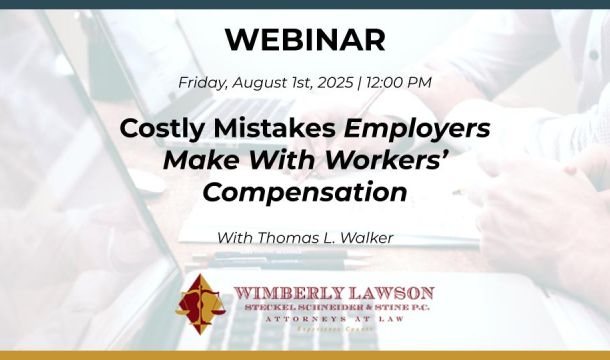Some Things Are Better Left Unsaid, At Least In An Email
A case out of Pennsylvania deals with an issue that keeps HR professionals up at night: emails giving direction to a supervisor with regard to handling the discipline of a long-time employee. In these emails, the HR manager advised the employee's supervisor supervisor to follow every step of the company's progressive discipline policy, even though company policy did not require him to do so. The HR manager also said that because the employee in question had been working for the company for more than 20 years and was in the "over 40 protected class," all steps should be taken to avoid the risk of "a situation where this [could] potentially drag out longer with complications."
The employee, who was eventually terminated, filed a lawsuit for age and disability discrimination. In that lawsuit, the employee's attorney argued that the HR manager's email was direct evidence of age-related bias. [In a discrimination case, direct evidence of discrimination is extremely harmful to the employer because it essentially shifts the burden of proof.]
The Court rejected that argument, instead finding that the emails showed that the employer was trying to avoid creating grounds for a potential age discrimination claim by the employee by skipping a step in its progressive discipline program. The Court also found that the employee could not prove that she was terminated because of her age or disability. Rather, she was terminated due to documented problems with her job performance.
The takeaway: There is a big evidentiary gap between acknowledging that an employee is over the age of 40 and proving that such knowledge equals discriminatory motive. Nevertheless, some things are better left out of an email or written communication (that is not covered by attorney-client privilege), and saying that "Employee is in a protected class and might sue us if we are not careful" is probably one of them. Although the Judge did not find the email in question to be direct evidence of discrimination, the employer had to expend resources fighting that argument. Sensitive matters such as possible legal action by an employee should be confined to written communications with counsel.

Kathleen J. Jennings is a former principal in the Atlanta office of Wimberly, Lawson, Steckel, Schneider, & Stine, P.C. She defends employers in employment matters, such as sexual harassment, discrimination, Wage and Hour, OSHA, restrictive covenants, and other employment litigation and provides training and counseling to employers in employment matters.
Related Content
Get Email Updates
Recent Content

How to Audit Employment Discrimination Laws Compliance

TPS Update (As of 6/17/2025)

TPS Designation for Honduras and Nicaragua Automatically Extended, But the Date is Uncertain

President Trump Discourages Criminal Enforcement of Agency Rules

Supreme Court Suggests Trump Can Fire Agency Heads without Cause
